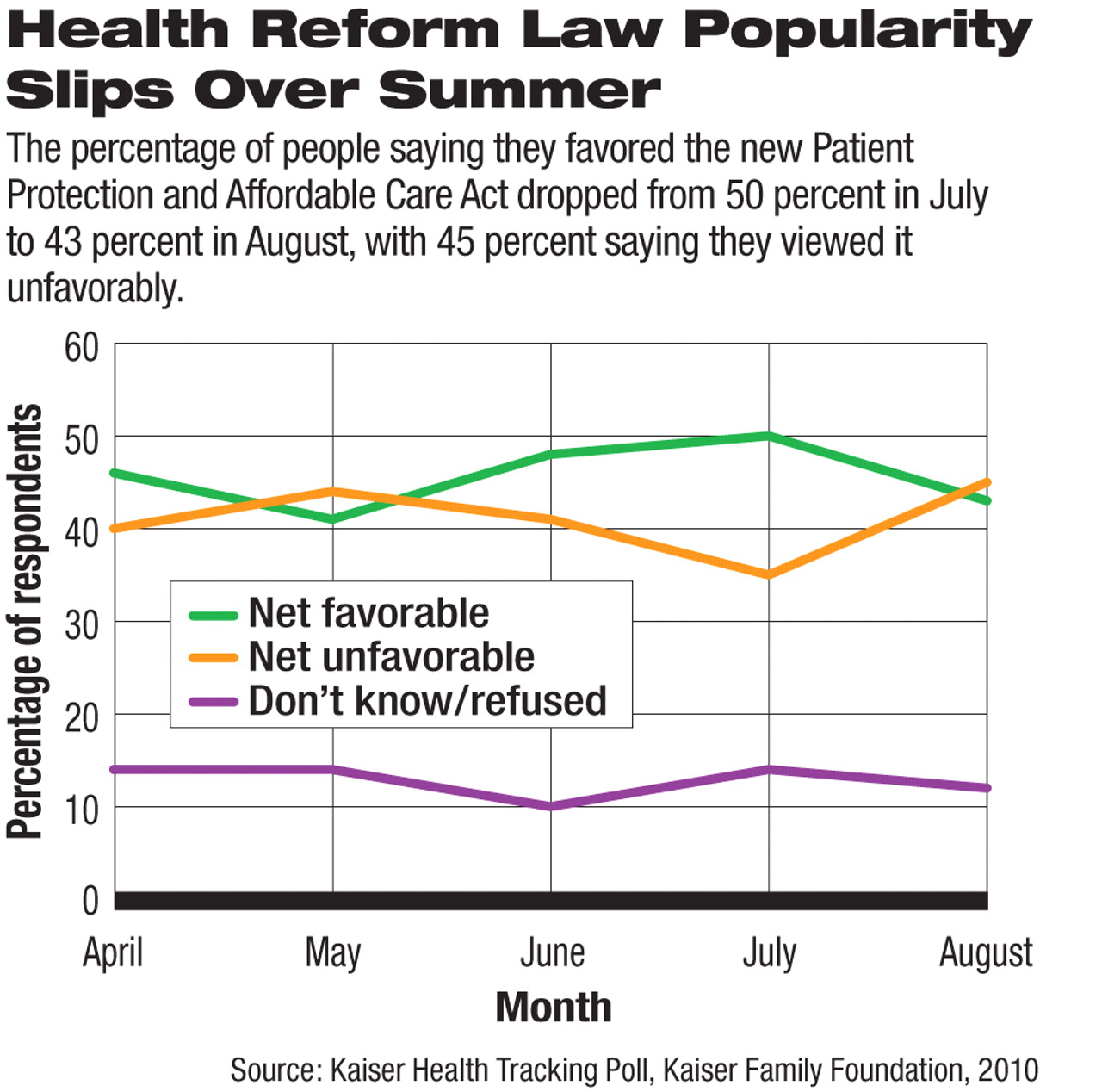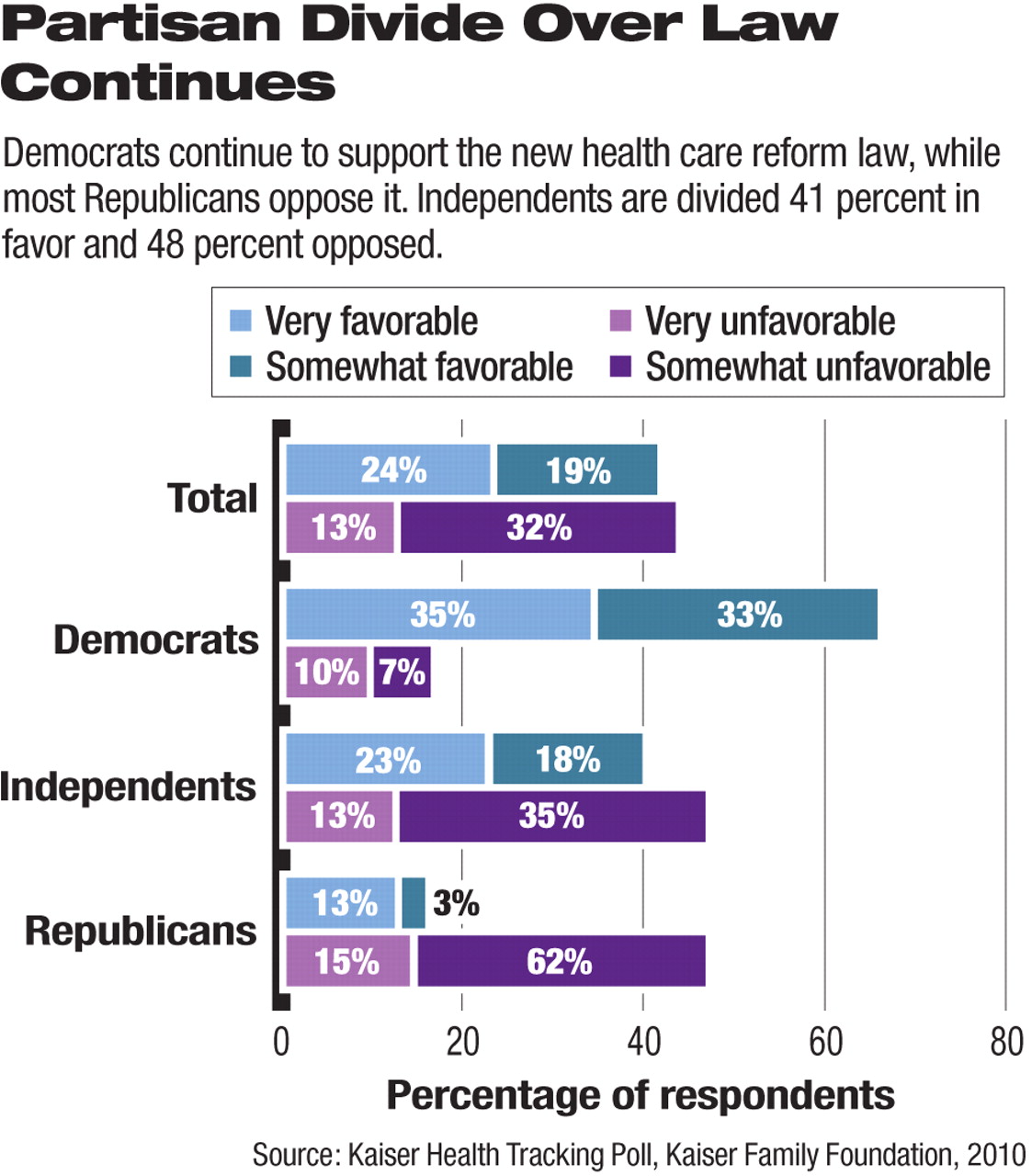More Americans Fail to See Value of Health Reform
Abstract
The new health care reform law passed by Congress last year lost a little luster over the summer, according to a survey by the Kaiser Family Foundation.
The percentage of people saying they favored the new Patient Protection and Affordable Care Act dropped from 50 percent in July to 43 percent in August, with 45 percent saying they viewed it unfavorably. Roughly 1 in 10 Americans still had no opinion on the law (see chart), and 3 in 10 Americans continued to support repeal.

The proportion who think the country as a whole will be better off with health reform also dropped somewhat, to 39 percent, and roughly the same percentage—37 percent—think the country will be worse off. The share of Americans who reported feeling “disappointed” in the health reform law now stands at 51 percent, up from 42 percent in July.
Partisan polarization around the law continues. Most Democrats (68 percent, about the same as the 73 percent who said so in July) continued to support the law, while most Republicans opposed it (77 percent, up from 69 percent); independents were divided 41 percent in favor and 48 percent opposed (see chart).

The Kaiser Health Tracking Poll was designed and analyzed by public opinion researchers at the Kaiser Family Foundation led by Mollyann Brodie, Ph.D. The survey was conducted August 16 through August 22 with a nationally representative random sample of 1,203 adults aged 18 and older, including 1,066 adults who said they are registered to vote. Telephone interviews conducted by landline (801) and cell phone (402, including 158 who had no landline telephone) were carried out in English and Spanish.
Many of the provisions of reform scheduled to be implemented in the shorter term remain appealing to large segments of the public. A substantial majority said that eliminating preexisting-condition exclusions for children (72 percent), providing tax credits to small businesses (71 percent), and requiring new health plans to provide access to basic preventive care without charging a copayment (70 percent) make them view the law more favorably.
When it comes to employer penalties, however, the public is split—51 percent in favor versus 47 percent opposed. And views on the individual mandate are even more negative, with 70 percent saying they look unfavorably on the provision that requires nearly all Americans to have health insurance or pay a fine. Even among those who have a favorable view of health reform in general, fewer than half (41 percent) have a favorable view of the individual mandate.
Interestingly for physicians, the provision that made the smallest percentage feel favorable about the law—and the largest percentage feel unfavorably toward it—was that which would limit increases in Medicare provider payments. Just 43 percent said that provision made them favorably disposed to the law, and 34 percent said it was an unfavorable proposal; 23 percent said it made no difference in how it made them feel about the law.
The full report and a brief on the poll can be accessed at <www.kff.org/kaiserpolls/8093.cfm>.



